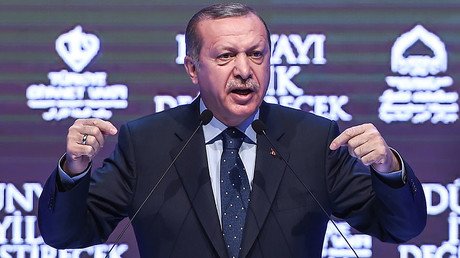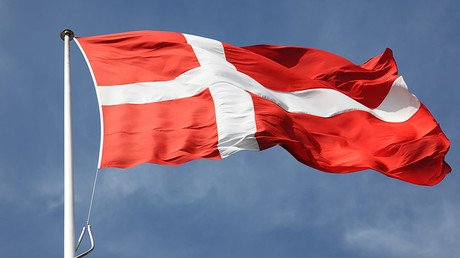'Combustible mix of nationalisms behind Dutch-Turkish diplomatic row’
The latest spat in diplomatic relations between Turkey and the Netherlands is in no small part caused by internal processes in both countries and a “clash of nationalisms,” Mark Almond, the director of the Crisis Research Institute in Oxford, told RT.
RT:Let’s start with your take on the Dutch PM’s move.
Mark Almond: I think that we must remember that before it blew up on Friday night and into Saturday, in fact, Mark Rutte and his supporters had been increasingly engaged in a Dutch nationalist campaign at home to counter a threat to them from Geert Wilders’ openly nationalistic party.
So we have Dutch nationalism playing its role in an internal run-up to the Dutch elections on Wednesday but we also have, of course, a referendum campaign in Turkey itself, which is spread across Europe because so many Turkish citizens live abroad.
So we have two campaigns, each of which has an interest in stirring up nationalism. The great problem is that they have now collided and that will have Europe-wide connotations and consequences that would outlive its actual and major cause, which is elections.
RT:What is your view on the fact that democratic principles are under pressure and are being compromised?
MA: It is a very complicated question. On the one hand, if you allow joint citizenship then you again will have a situation in which people are concerned about the politics in the country where they live, but also about the politics in the other country, they can call the home country, where they have citizenship.
It is not entirely improbable that they are going to have political party campaigns and referendum campaigns from outside, in this case – from Turkey. The problem for the Dutch government is that it has permitted (and so have the Germans and the Austrians) some campaigning by critics of President Erdogan, by groups that do not particularly want his referendum proposals to pass but they said one cannot have meetings attended by his ministers.
In the Dutch case, they had a kind of a legal basis for saying that they do not like foreign governments to play a role in [Dutch] politics. In the German, Austrian and Swiss cases, they tended to use arguments that the venues are not safe, and so on. That may be true but it may be an excuse.
And it is certainly poisoning the atmosphere. We also have to remember that we have sharp divisions amongst the Turkish citizens, who live in these countries because not all of them support President Erdogan. For instance, those of Kurdish origin tend to be strongly against his proposals. So we do have a risk of “intra-Turkish” tensions in these countries… as well as tensions between the governments of these countries and the Turkish government.
We have also other groups like Moroccans and North Africans in the Netherlands. After all, the mayor of Rotterdam is of Muslim origin from North Africa and he is supporting the Dutch government stance, so we have a very complex mix of nationalism, national identity and citizenship, religious identity, regional identities – it is a huge mess and a very dangerous one, too.
RT:It seems very complex but it also seems that the things are being allowed across the border in a fair manner. Why do you think… is Europe intent on blocking Turkish officials from speaking at rallies? Why is this impression and, if it is indeed the case, why are they doing it?
MA: It is almost a consensus among European Union countries and certainly among the western European Union countries that President Erdogan has become too big for his boots, that he responded to the failed coup by becoming more authoritarian. So they would ideally like him to lose the referendum and his power base to be chipped back.
It is fairly obvious that this could backfire in Turkey, as many Turks would rally to the government simply because they do not want to be pushed around by the EU countries. There are also these internal issues because in addition to the Dutch elections coming up in a few days, we have also elections in Germany, where you again have a large expatriate population from Turkey and other countries and it is becoming part of the local politics.
And there are just extreme right-wing groups like Geert Wilders’ in the Netherlands, whose party is trying to capitalize on the tensions about migration. There are also more respectable conservative parties like Mr. Rutte’s in the Netherlands or Angela Merkel’s CDU in Germany, which are beginning to say that everybody should be really Dutch or really German, [that] people should abandon their roots. That creates some tensions with people from migrant communities.
The Turkish issue has become a touchstone of this internal politics precisely because we have some external factors, including the Syrian refugees and the attempts by the Europeans to buy off the Turks by giving them considerable grants in order to prevent people from crossing to Europe. But then you have Turkey itself and its desire to join the EU, alongside clear signs that it would not be a very comfortable partner.
Increasingly, the domestic politics of countries like Germany, Austria, the Netherlands, where politicians guess that their population, their voters do not really want the EU to expand to Turkey and play up to those fears and those points of view, creates a very combustible mix.
The statements, views and opinions expressed in this column are solely those of the author and do not necessarily represent those of RT.














